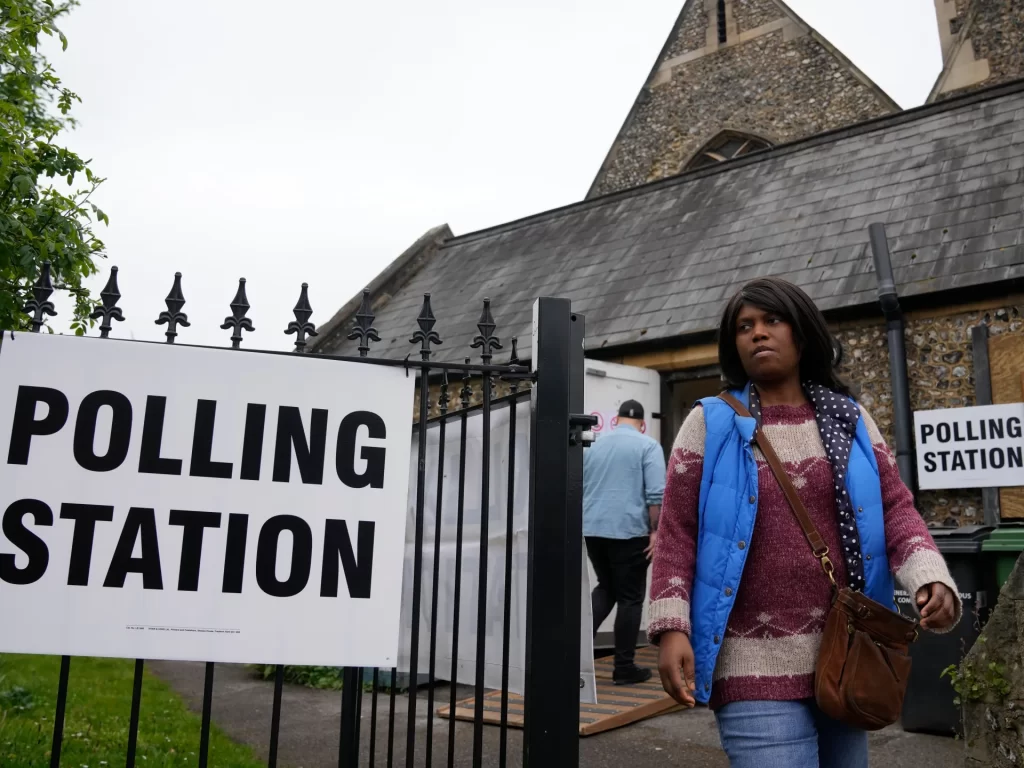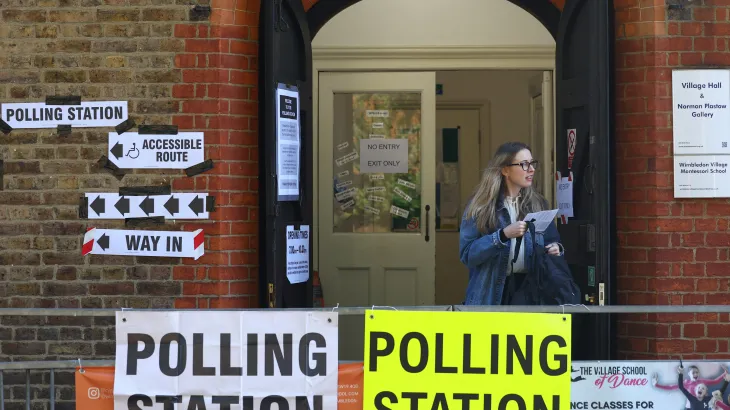Britons are casting their votes today in a parliamentary election that is widely expected to bring Keir Starmer’s Labour Party to power, potentially ending 14 years of Conservative rule under Prime Minister Rishi Sunak. Opinion polls consistently predict a landslide victory for Labour, reflecting a desire for change among voters after a tumultuous period that saw five prime ministers in eight years.

The election, called months earlier than anticipated by Sunak, has seen 40,000 polling stations open across the country from 0600 GMT. Both party leaders cast their votes early, with Sunak voting in his northern England constituency of Richmond and Starmer in his north London district.
Keir Starmer, the 61-year-old former human rights lawyer leading Labour, has framed the election as a chance for Britain to “begin a new chapter.” He emphasized the need for change, stating, “We cannot afford five more years under the Conservatives.” However, Starmer faces the challenge of potentially taking office with a massive to-do list but without overwhelming public support or substantial financial resources to address it.

Prime Minister Rishi Sunak, 44, has shifted his campaign strategy in recent weeks. Initially calling for a fifth consecutive Conservative victory, he now warns of the dangers of an unchallenged Labour Party in parliament. Sunak cautioned voters that a Labour government would increase taxes, hinder economic recovery, and leave Britain more vulnerable in times of geopolitical tension – claims Labour denies.
The polls suggest Britain may follow other European countries in punishing incumbent governments after the cost of living crisis stemming from the COVID-19 pandemic and Russia’s invasion of Ukraine. Unlike France, the UK appears poised to move towards the center-left rather than further right.
Labour has maintained a substantial poll lead of 15 to 20 points since Sunak took office in October 2022. Modelling by pollsters predicts Labour could achieve one of the biggest election victories in British history, potentially surpassing majorities won by Tony Blair or Margaret Thatcher.

This dramatic shift in political fortunes was unimaginable during the last election in 2019 when Boris Johnson secured a large victory for the Conservatives. Since then, the Conservative Party has faced internal turmoil, scandals, and the fallout from Brexit, eroding its credibility and unity.
Starmer, who took over Labour from Jeremy Corbyn after the party’s worst defeat in 84 years, has steered the party back to the center. He now faces the challenge of delivering on his promise of change while managing limited resources and high expectations.
The election result could also be influenced by factors such as the performance of smaller parties like the Liberal Democrats and Reform UK, as well as Labour’s potential recovery in Scotland.
As Britons cast their votes, the country stands at a crossroads, with the outcome likely to shape British politics and policy for years to come. The exit poll at 2100 GMT will provide the first indication of the results, with detailed official tallies expected in the early hours of Friday.
Reuters



